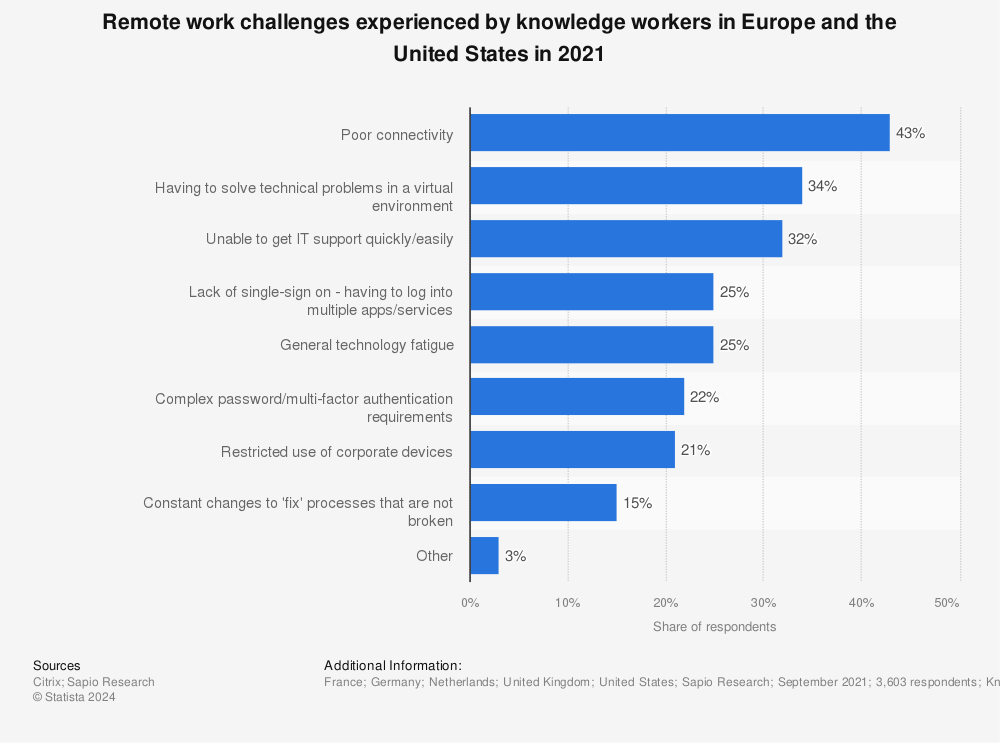Why Many Hate Working from Home
Working from home (WFH) is a hot topic that’s generated all kinds of opinions. While it may have been the dream for many to swap the office for their own cosy corner, not everyone is thrilled. Below are some reasons why a good chunk of the workforce isn’t too happy with the remote work arrangement.
The Blending of Work and Rest
For many, home is the hub of rest and relaxation, far away from the stress of deadlines and meetings. Yet, when the home turns into an office, there’s a loss of that sanctity. You’re in danger of permanently being on the clock, where the end of the workday is blurred, making it too simple to end up glued to the desk way longer than intended.
“Life is really simple, but we insist on making it complicated”
– Confucius
Devotion to Routine
Working from the comfort of home can mean days without stepping out or taking proper care of oneself. A chunk of us thrive on the routine that comes with an office, wake up, freshen up, dress up, and show up. It’s a rhythm that keeps both body and mind in check.
The Need for Social Contact
Despite the convenience of digital communication, something’s lost in translation. Quick chats in the hallway, lunchroom banter, these spontaneous forms of networking are gold. They can build work relationships that are more than just “work friends” but are mentors, allies, and part of your professional tribe.
The Misconceptions of Others
Family and friends may misunderstand what WFH means, casually dropping by because, well, you’re home. It takes extra effort to set boundaries and make it known that even though you’re not in the office, you’re still very much on the job.
Interruptions and Distractions
WFH can ironically bring a new set of interruptions, whether it’s pets, deliveries, or even a bit of unexpected spousal affection. Not to mention the frustratingly loud Zoom calls that can leave you craving the silence of an empty office.

Find more statistics at Statista
Hybrid as a Possible Solution?
There’s no denying the appeal of a hybrid schedule, part office, part home. It could be the middle ground, offering the benefits of both worlds. Two days at home could mean less commuting and the option to weave personal errands into the week. But will all companies hop on this solution? We will see.
A Feeling of Isolation
WFH can put a damper on your social life. Without a workplace to serve as a social hub, it might get lonely out there. Even for those with a solid social circle, there is value in friendly office small talk and the sense of team spirit.
Young Professionals Miss Out
Getting ahead often means getting to know people. For younger professionals, the office can be where vital connections are made, those irreplaceable encounters that you can’t schedule on Zoom.
Mental Health Matters
Last but certainly not least, WFH can mess with your mental health. Without the external motivation to look and feel your best, some might find themselves getting worse. Mental well-being is nothing to scoff at, and for some, the structure of an office environment is a lifeline.
To sum it all up, WFH isn’t a one-size-fits-all. While some revel in the freedom it brings, others find themselves missing the structure and team spirit of office life. Companies may need to consider these different needs as they navigate the future of the workplace. Perhaps compromise, in the shape of hybrid work arrangements, could be the key to keeping everyone a tad more content. Let’s remember, work is a massive part of our lives, and it’s crucial we find balance and joy in it, wherever that might be.
- The Impact of Job Hopping: Are There Career Consequences? - April 25, 2024
- Should You Follow up on a Job Application - April 22, 2024
- Job Application: Best Practices for Listing Reasons for Leaving a Job - April 18, 2024

